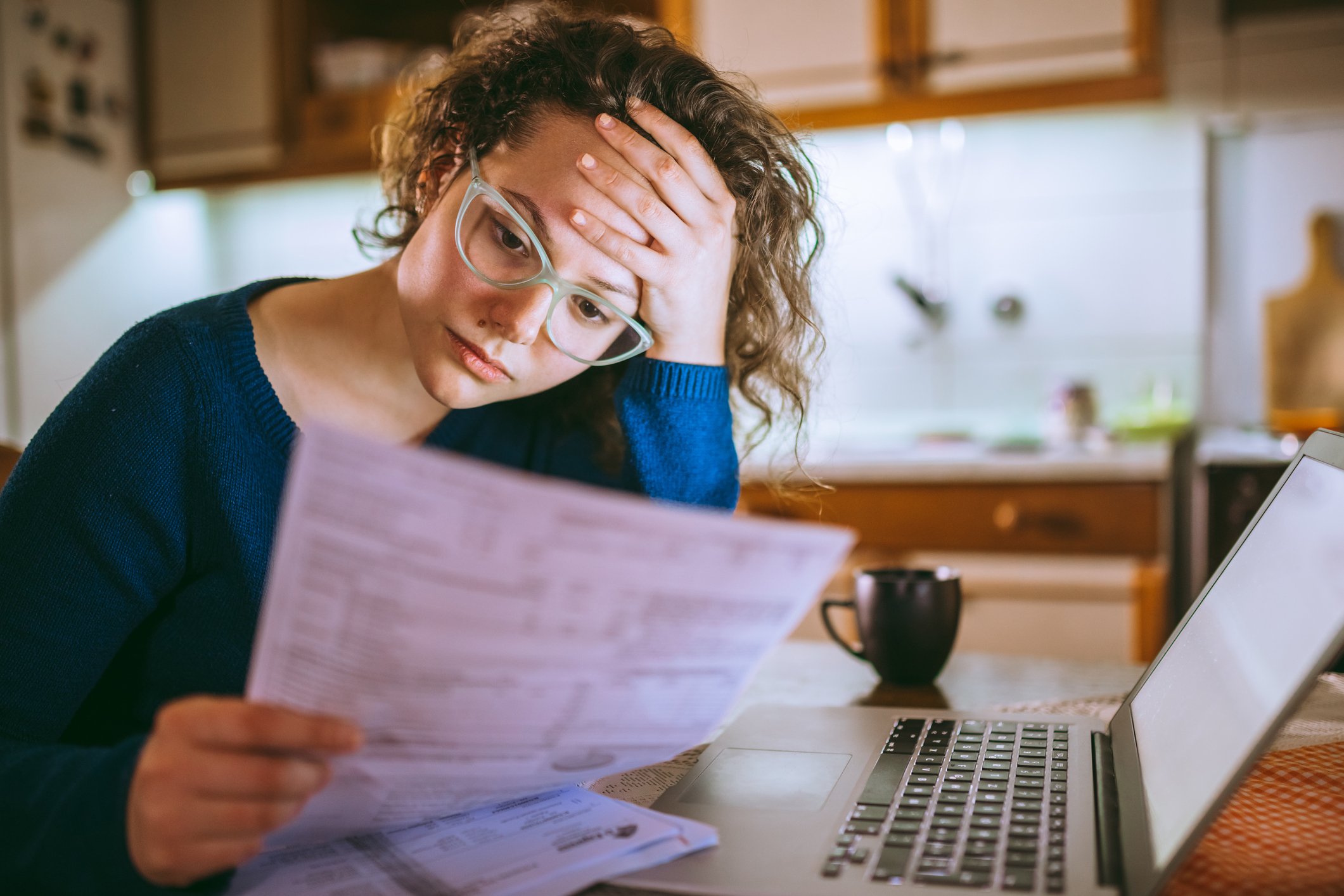Life has a way of throwing unpleasant financial surprises our way. You could wake up one morning to a freezing home in the middle of winter, or try starting your car only to find that your "check engine" light is flashing a dire warning. And let's not discount the possibility of losing your job, whether you're a strong performer or not, or racking up medical bills as the result of a sudden injury.
That's why you need emergency savings -- money set aside for a rainy day. Specifically, you should have between three to six months' worth of essential living expenses socked away in the bank so that if you need money in a pinch, you won't be forced to charge up a storm on a credit card and face some nasty financial consequences after the fact.

IMAGE SOURCE: GETTY IMAGES.
But nearly half of U.S. adults don't have enough money in savings to cover the low end of that spectrum -- three months of living expenses -- according to a new Equifax survey. As such, millions of Americans are putting themselves at risk of racking up credit card debt and damaging their credit in the process.
If you don't have a good three months' worth of living expenses in the bank, you need to make that your utmost priority. The good news? If you focus your efforts on building that safety net, you'll hit that milestone before you know it.
Building an emergency fund quickly
The longer you go without adequate savings, the more you put yourself at risk. If you're serious about building an emergency fund quickly, the first thing you need to do is create a budget, see where your money is going month after month, and then slash some expenses to free up cash. That could mean downsizing to a smaller home, getting rid of a car you technically don't need, or curbing all leisure spending (think restaurant meals, streaming services, cable, concerts, and the like) until your savings are in a better place. Or, it could be a combination of all of those things, depending on how sorry your bank account is looking.
Imagine, for instance, that moving to a smaller apartment cuts your rent by $300 a month, giving up your car saves you another $400, and curbing leisure spending puts $300 back in your pocket. Suddenly, that's $1,000 a month to work with, which can get you to your goal more quickly.
At the same time, it pays to consider getting yourself a side job to boost your earnings. Working a few extra hours each week will give you access to cash that isn't already earmarked for existing expenses, which means you should have no problem sticking all of it in the bank.
Finally, be smart about windfalls you receive during the year, whether it's a bonus at work or cash gifts during the holidays. Until you have a solid three months' worth of living expenses socked away, any extra money you receive should go directly into savings.
Building an emergency fund isn't something you can do overnight, and if you're truly starting with nothing, it may not even be the sort of thing you can do in a year. The key, however, is to start working toward that goal today, and do your best to meet it as quickly as you can. It's the only way to buy yourself the protection you need against life's many financial unknowns.





